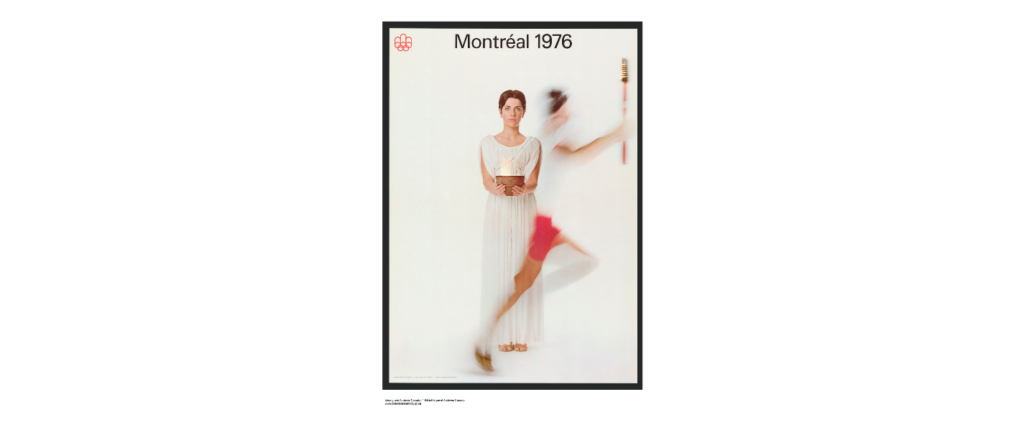Planning for Montreal
“Our task, gentlemen, is to defend in the name of Canada and Mr. Drapeau, a running track, a swimming pool and 1400 porta-toilets against the forces of evil [Source: Vancouver Sun, 25 February 1976].” That was how an editorial cartoon appearing in the Vancouver Sun in 1976 depicted the role of the RCMP for the Olympics. The RCMP, though, had no illusions about security for the Olympics. They understood that Munich had changed everything. Security planning for the Montreal Olympics involved extensive research into domestic and international threats. It was the first major effort by the Canadian security forces to plan on a global scale.
Security for any Olympics creates innumerable complications. International media attention provides a tempting target for terrorists. It requires a diverse security operation at almost every level, and the host nation’s prestige is vulnerable during the games. The sheer scale of the event, with so many countries from around the world, produces new threats with which the host nation lacks experience. It is one of the few international events that routinely attract participants from the most volatile regions in the world. For this reason, although a local police officer was responsible for coordinating the security operation in Montreal, it fell to the RCMP to lead the effort.

The committee responsible for the Olympics, COJO (Comité Organizateur des Jeux Olympiques), played no role in security planning. As one officer with the Security Service noted in an internal memorandum, “we should have no illusions over COJO’s interest in security, which is nil, and that the screening program is more in the interests of the security force than anyone [Source: CHRH Archive].”
The Security Service envisioned a program of domestic and international activities that would require a dramatic expansion of its current capabilities. From the beginning, a key priority was identifying threats from abroad. Each program had its own objective, but their common purpose was to use Canadian delegations, as well as foreign security and intelligence agencies, to collect information. There was also an extensive program of security screening and press accreditation, which dramatically exceeded expectations (double the original estimate). The RCMP worked with COJO to create a system of identity cards/badges for the games. In addition, the International Olympic Committee had assumed that, as had been the practice in the past, all of its officials and delegation would be exempted from normal customs controls and inspections (including no inspection of baggage). One of the federal governments’ first decisions, however, was to reject this practice. The Security Service was highly critical of German authorities for authorizing exemptions to border controls for Olympic participants: “The German Government carried this system to the point of virtually abdicating responsibility for entry requirements by accepting the Olympic identity card in lieu of a passport and visa. Control of the document was entirely by the Olympic authorities. … The use of these document as the single entry requirement would in effect mean abandoning Canadian immigration security [Source: CHRH Archive].”
One of the first long-term security precedents arising from the Montreal Olympics was, therefore, requiring all delegations to undergo routine border screening. Furthermore, the RCMP established a Refugee/Defector program because dozens of athletes (mainly from communist countries) had sought asylum in Munich (there would be none in Montreal). To secure the borders, the Security Service recommended to Cabinet that the government implement legislation allowing the RCMP to summarily deport non-citizens if they were suspected of disrupting or engaging in violence during the games. Such legislation, according the RCMP, would require an exemption “from the Bill of Rights and most certainly will be attacked as an unwarranted invasion of civil liberties [Source: CHRH Archive].”

The Security Service also implemented several domestic programs designed to collect and analyze information, produce threat assessments, and share information among federal, provincial and municipal agencies. There was always the danger that Canadian citizens who were sympathetic to national liberation movements abroad would attempt to use the Olympics to advance the cause. For instance, the RCMP was worried that Ukrainian-Canadians might protest Soviet participation in the games or that Quebec nationalists would protest the Queen’s visit. There was also concern surrounding the Irish Republican Army and its supporters in Toronto and Montreal, although the Security Service determined that the likelihood of an attack was minimal. The Diffusing Program was designed to “defuse Canadian activist groups which might be a threat to the games. Dissident groups and selected ethnic organizations were contacted by investigators across the country to solicit aid in keeping their militant elements under control during the Olympic period [Source: CHRH Archive].” The Olympics had, in this way, provided a useful opportunity for the Security Service to expand its domestic surveillance program and enhance links with ethnic communities in large cities.
The Security Service identified several organizations as potential threats. The Palestinian Liberation Organization was at the top of the list, as well as several other national liberation groups. There was little the police could do in these cases other than gather information with the assistance of allies such as Britain and the United States. On the other hand, the RCMP had a long-standing practice of infiltrating domestic advocacy groups, and was therefore able to use existing resources to monitor domestic threats. The Security Service identified dozens of potential threats within Canada,and appears to have been especially concerned about Quebec separatists, “Native” extremists, and black nationalists. French Canadian separatists were routinely cited in RCMP threat assessments for the Olympics, which is unsurprising in light of the Front de liberation du Québec’s campaign of bombings and kidnappings over the previous decade.
